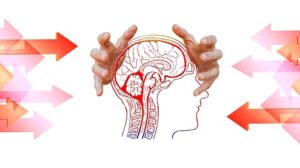Clinical mental health counseling is a powerful and transformative approach that helps individuals navigate the complexities of their mental health challenges. With the rise of mental health awareness, the demand for skilled clinical mental health counselors has never been higher. These professionals offer invaluable support, guidance, and therapeutic interventions to those in need, fostering resilience, healing, and personal growth.
Clinical mental health counseling stands at the forefront of mental health care, providing tailored solutions to a wide range of psychological issues. By addressing emotional, behavioral, and cognitive concerns, clinical mental health counselors empower individuals to overcome obstacles and lead fulfilling lives.
What Is Clinical Mental Health Counseling?
Clinical mental health counseling involves trained professionals working with clients to address emotional, psychological, and behavioral issues. Counselors assess, diagnose, and treat mental and emotional disorders through observation, interviews, and psychological tests. They provide individual or group counseling services to assist individuals in achieving more effective personal, social, educational, and vocational development and adjustment.
Benefits of Clinical Mental Health Counseling
Engaging in clinical mental health counseling offers numerous advantages:
- Improved Communication Skills: Counseling helps individuals express their thoughts and feelings more clearly, enhancing relationships.
- Enhanced Self-Esteem: Through therapy, clients often develop a better self-image and increased confidence.
- Effective Coping Strategies: Counselors teach techniques to manage stress, anxiety, and other challenges.
- Personal Insight: Therapy provides a deeper understanding of oneself, leading to personal growth.
- Behavioral Change: Counseling can help modify harmful behaviors and promote healthier habits.
These benefits contribute to overall mental wellness and a higher quality of life.
While mental health counseling plays a critical role in addressing emotional and psychological struggles, there are instances where more intensive care may be needed. For example, certain medical conditions related to mental health may require hospitalization. To learn more about conditions that may necessitate this level of care, check out this article on medical conditions that require hospitalization.
Techniques Used in Clinical Mental Health Counseling
Cognitive-Behavioral Therapy (CBT)
Cognitive-behavioral therapy (CBT) is a widely used technique in clinical mental health counseling. It focuses on identifying and changing negative thought patterns and behaviors that contribute to psychological distress. Through CBT, clients learn to develop healthier coping mechanisms, challenge irrational beliefs, and improve their emotional regulation.
Person-Centered Therapy
Person-centered therapy is another effective approach in clinical mental health counseling. This technique emphasizes the importance of creating a supportive and non-judgmental therapeutic environment. Counselors use empathy, active listening, and unconditional positive regard to help clients explore their feelings and experiences, fostering self-awareness and personal growth.
The Impact of Clinical Mental Health Counseling
Enhancing Emotional Well-being
Clinical mental health counseling has a profound impact on emotional well-being. By addressing issues such as anxiety, depression, trauma, and relationship problems, counseling helps individuals develop healthier emotional responses and improve their overall quality of life. The therapeutic process provides a safe space for clients to express their emotions, gain insights, and develop effective coping strategies.
Building Resilience and Coping Skills
Resilience is the ability to bounce back from adversity and maintain psychological well-being in the face of challenges. Clinical mental health counseling helps individuals build resilience by teaching them valuable coping skills and strategies. These skills enable clients to manage stress, navigate difficult situations, and maintain a positive outlook on life.
The Role of Clinical Mental Health Counselors
Clinical mental health counselors play a crucial role in the healthcare system:
- Assessment and Diagnosis: They evaluate clients to identify mental health disorders.
- Treatment Planning: Counselors develop personalized strategies to address specific issues.
- Therapeutic Intervention: They employ various techniques to facilitate healing and growth.
- Crisis Management: Counselors provide support during acute mental health crises.
- Advocacy: They advocate for clients’ needs within the healthcare system and the community.
Their comprehensive approach ensures clients receive holistic care tailored to their unique situations.
How to Access Clinical Mental Health Counseling
Finding the right counselor involves several steps:
- Identify Your Needs: Determine the specific issues you want to address.
- Research Professionals: Look for licensed counselors with expertise in your areas of concern.
- Consider Logistics: Factor in location, availability, and cost.
- Consult Reviews: Seek testimonials or reviews from other clients.
- Schedule a Consultation: Meet with potential counselors to assess compatibility.
Taking these steps can help you find a counselor who meets your needs and fosters a supportive therapeutic relationship.
People Also Ask
What is the difference between a clinical mental health counselor and a psychologist?
While both professionals address mental health issues, clinical mental health counselors focus on providing therapy and counseling services, often dealing with specific problems and life challenges. Psychologists may provide similar services but also conduct psychological testing and engage in research.
How long does clinical mental health counseling typically last?
The duration varies based on individual needs and goals. Some people may benefit from short-term counseling over a few weeks, while others might engage in therapy for several months or longer.
Is clinical mental health counseling confidential?
Yes, counselors are bound by ethical guidelines to maintain client confidentiality, with certain exceptions such as imminent harm to self or others.
Do I need a referral to see a clinical mental health counselor?
In many cases, no referral is needed. However, some insurance plans or specific counselors may require one, so it’s best to check beforehand.
How does clinical mental health counseling help with anxiety and depression?
Clinical mental health counseling helps individuals with anxiety and depression by providing personalized therapeutic interventions. Techniques such as cognitive-behavioral therapy (CBT) and person-centered therapy can help clients develop healthier coping mechanisms, challenge negative thought patterns, and improve their emotional regulation.
What qualifications do clinical mental health counselors have?
Clinical mental health counselors typically hold a master’s degree in counseling or a related field. They are licensed professionals with specialized training in various therapeutic techniques and mental health assessments.
Can clinical mental health counseling help with relationship problems?
Yes, clinical mental health counseling can help individuals and couples address relationship problems. Counselors work with clients to improve communication, resolve conflicts, and build healthier, more fulfilling relationships.
Bottom Line
Clinical mental health counseling is a transformative process that empowers individuals to overcome challenges and improve their quality of life. By engaging in therapy, clients gain valuable insights, develop effective coping strategies, and achieve personal growth. As the demand for mental health services continues to rise, accessing professional counseling becomes increasingly important for maintaining emotional and psychological well-being.




